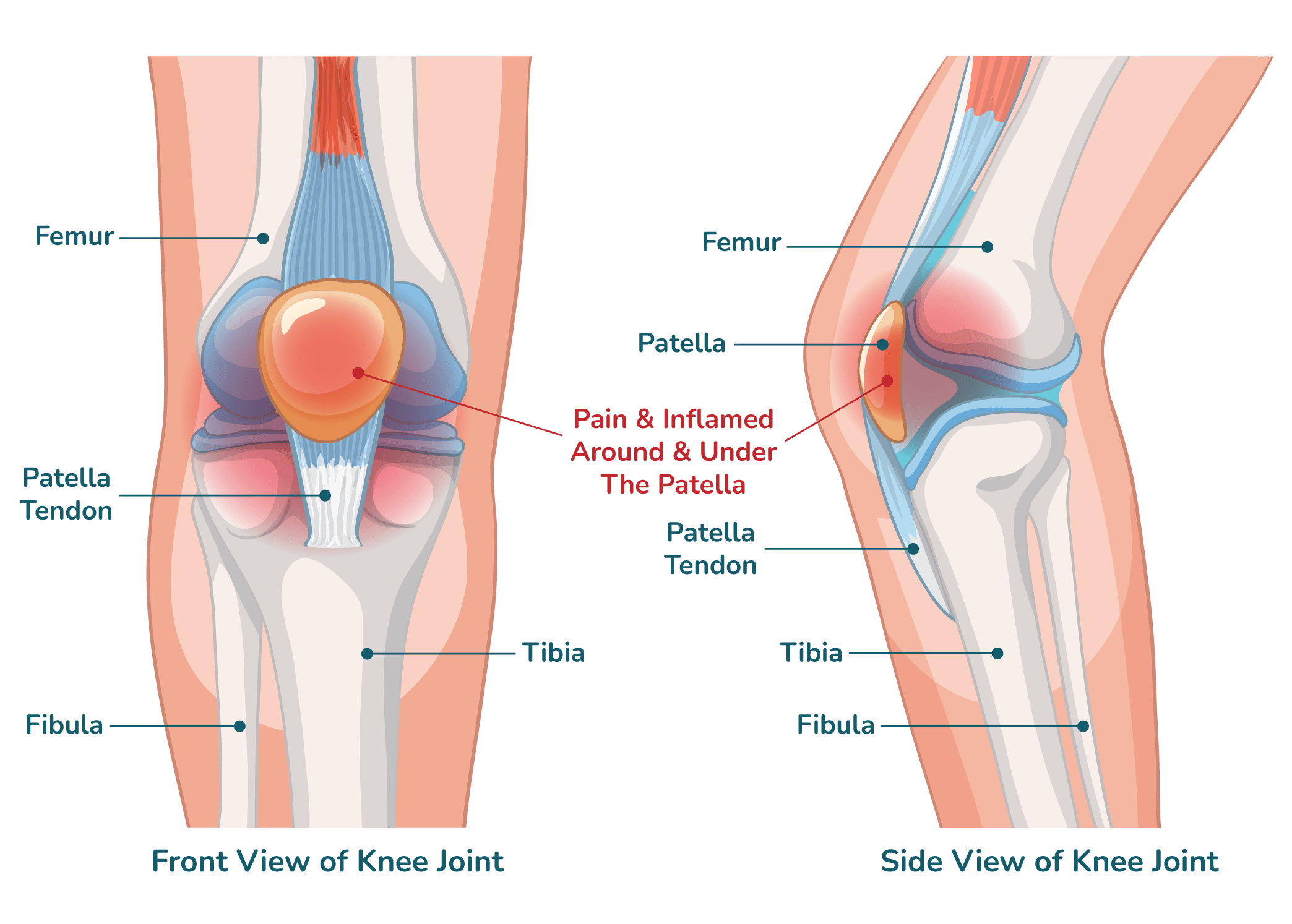Specialized MPFL Treatment in Singapore MPFL Reconstruction Surgery
Dr. Sean Leo is an orthopaedic surgeon specialising in MPFL injury treatment, bringing over 25 years of clinical experience as a doctor. He uses advanced, minimally invasive techniques for MPFL reconstruction to restore knee stability, improve mobility, and support a confident return to daily activities or sports.
Dr. Sean Leo

What is MPFL Injury?
Medial Patellofemoral Ligament (MPFL) injuries are common, especially among athletes involved in sports that require sudden changes in direction, jumping, or direct contact. MPFL injuries can range from mild sprains to complete tears, often causing pain, swelling, and a sense of instability in the knee.
The MPFL is a ligament located on the inner side of the knee and helps stabilize the patella (kneecap), preventing it from dislocating or shifting out of its normal position. When injured, it can lead to difficulty with knee movement, particularly during activities like running, jumping, or twisting.
Recognizing MPFL injury symptoms early and consulting a knee specialist is key to determining the best treatment. While some MPFL injuries can be managed with rest, physiotherapy, and bracing, more severe injuries may require surgical reconstruction to restore knee stability and function.
Exploring treatment options early helps ensure a faster recovery and a confident return to normal activity or sports.
What are the Symptoms
of a MPFL Tear
Common symptoms of an MPFL tear include:

Pain and Tenderness
Around the Kneecap
Patients typically experience pain around the kneecap, especially when pressure is applied or during specific movements such as bending or straightening the knee.
Swelling
Swelling usually develops within hours of the injury as fluid and blood accumulate in the knee joint, causing tightness and discomfort.
Limited Knee Movement
Pain and swelling can restrict the knee’s ability to fully bend or straighten, significantly affecting mobility and daily activities.
Instability
A feeling of instability or weakness in the knee, especially during weight-bearing activities, is common with more severe MPFL tears, making it feel as if the knee is giving way.
MPFL Injury
Treatment and Recovery
- Treatment Options
- When Needed
- Recovery Time
- Success Rates
- Surgery Costs
What are the treatment options for MPFL injuries?
For MPFL injuries, treatment options vary depending on the severity of the tear and the patient’s activity level. For more severe MPFL tears, particularly complete ruptures, surgical intervention may be necessary to restore knee stability and function. This often involves minimally invasive techniques to repair or reconstruct the damaged ligament, helping to ensure a return to normal movement and activity.
In cases of less severe injuries, such as partial tears or for individuals with lower activity levels, non-surgical options like bracing, physical therapy, and rehabilitation can be effective. These methods aim to strengthen the knee, restore mobility, and reduce pain, often allowing patients to resume their daily activities without surgery.
Dr. Sean Leo specializes in advanced MPFL injury treatments, offering personalized care to promote the best possible recovery. The treatment plan will be tailored to your injury’s severity, activity level, and overall health.
When would you need MPFL surgery?
MPFL surgery may be necessary for individuals with significant injuries to the medial patellofemoral ligament. While some MPFL injuries can heal with conservative treatments such as rest, bracing, and physical therapy, certain factors may indicate the need for surgical intervention.
Surgical intervention for MPFL injuries may be recommended if:
- A complete MPFL tear is confirmed through imaging, such as MRI.
- There is noticeable knee instability, particularly when bearing weight or during movement.
- The individual is physically active and seeks to return to sports or demanding physical activities.
- Multiple ligament injuries are present, making the healing process more complex.
- The patient is young and has an active lifestyle requiring optimal knee function.
Early consultation with a knee specialist is crucial to assess the severity of the injury and determine the best course of treatment, ensuring long-term knee stability and a successful recovery.
How long does it take to recover from MPFL surgery?
Recovery from MPFL surgery typically takes about 6 to 9 months, with full recovery and a return to sports or intense physical activities often requiring up to 12 months. The timeline can vary depending on factors such as the severity of the injury, rehabilitation progress, and individual healing capacity.
The recovery process generally follows these phases:
Initial phase (0-2 weeks)
Focus on pain management, reducing swelling, and regaining basic mobility.
Early rehabilitation (2-6 weeks)
Improve range of motion and begin light strength exercises.
Intermediate phase (6-12 weeks)
Progressive strengthening and balance training.
Advanced rehabilitation (3-6 months)
Focus on sport-specific training and agility development.
Return to activity (6-12 months)
Gradual return to full sports participation with specific drills.
A personalized rehabilitation plan, guided by a knee specialist, is crucial for a safe recovery.
How successful is MPFL surgery?
MPFL surgery is generally highly successful, with excellent outcomes in restoring knee stability and function. Advances in surgical techniques and rehabilitation have significantly improved the results for patients undergoing MPFL reconstruction.
Key indicators of success include:
- Restoration of knee stability
- Return to pre-injury activity levels
- Prevention of further knee damage
- Improvement in quality of life
While MPFL surgery has a high success rate, there are potential risks and complications, as with any surgical procedure. Some patients may require revision surgery if the ligament does not heal as expected. Success is influenced by factors such as rehabilitation adherence, graft choice, and individual healing capacity.
Regular follow-up visits with your knee specialist are essential to ensure optimal healing and long-term knee health.
How much does MPFL surgery cost?
Cost of procedure varies based on the complexity of the surgery to be performed and individual insurance panel specifications. These will be discussed with you by Dr Sean’s clinic staff after the consultation should you wish to proceed with surgery. The clinic staff are experienced in assisting with applications for letter of guarantees from various insurance panels and corporate insurance panels.
Factors influencing the cost include:
- Surgical technique and complexity
- Type of graft used
- Hospital or day surgery center fees
- Anaesthesia services
- Pre-operative assessments
- Post-operative rehabilitation

